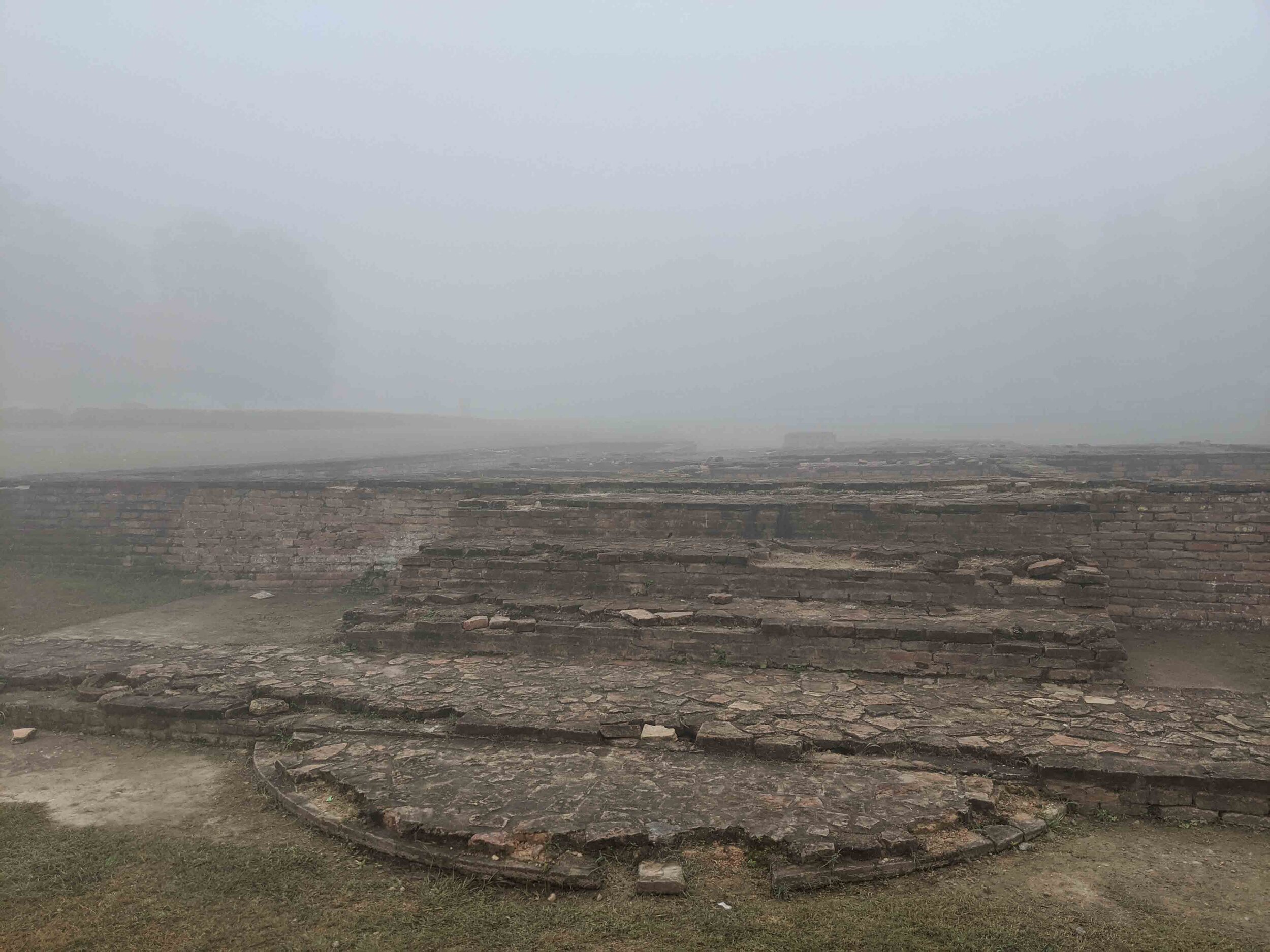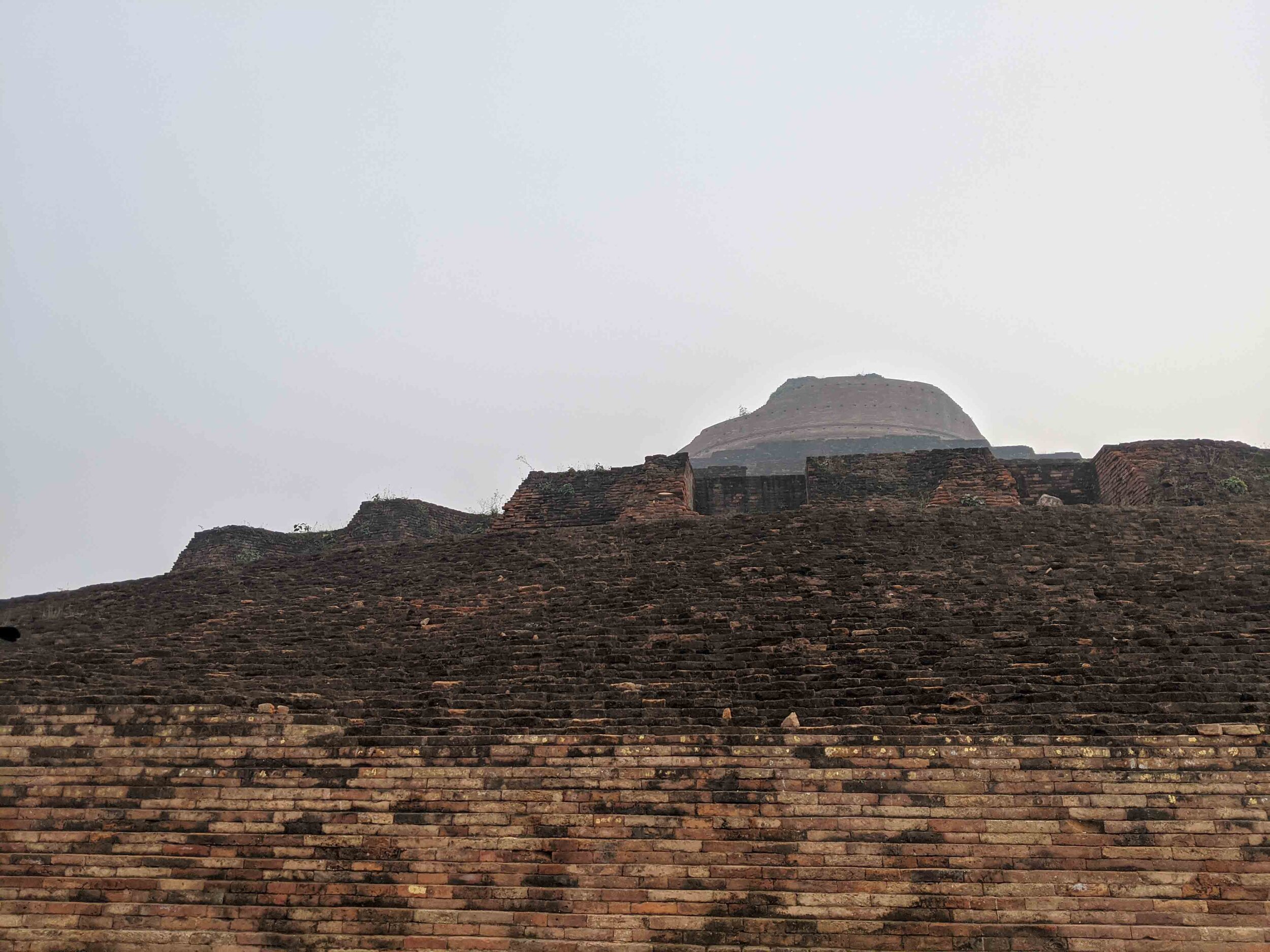Vesali or Vaishali
The Buddha first visited Vaishali in the fifth year after his Enlightenment, and spent the rainy season there. The Buddhist Theravadin Commentaries give detailed descriptions of the circumstances of this visit.
It was during his last visit here that the Buddha announced that he would die in three months’ time, before leaving for Kushinagar.
The main sites of interests include:
The Kesaria Stupa, which was built on the site to commemorate the Buddha’s Alms Bowl is also near to this area. It was first built by the Licchavis.
Kutagarasala Vihara, where the Buddha stayed, grounds of which include:
the relic stupa of the Licchavis
Stupa of Ananda (Buddha’s close disciple and his cousin)
Read more here: https://www.newworldencyclopedia.org/entry/Vaishali_(ancient_city)
Discourses delivered at Vesali include:
Kutagarasala Vihara
Kutagarasala Vihara had been the monastery where Buddha most frequently stayed while visiting Vaishali.

At Vesáli, Mahapajapati Gotami (the Buddha’s maternal aunt and step-mother) followed the Buddha with five hundred other Sakyan women.
With the help of Ananda's intervention, they obtained permission for women to enter the Order under certain conditions.
This image shows the site where the first nuns resided in Kutagarasala Vihara.
The Relic Stupa built by the Licchavis at Vaishali
The Relic Stupa of the Licchavis at Vaishali
Here the Licchavis reverentially encased on of the eight portions of the Buddha’s relics, which they received after the Mahaparinirvana.
“The Licchavis of Vesālī heard, “The Blessed One, they say, has totally unbound in Kusinārā.” So they sent an envoy to the Kusinārā Mallans: “The Blessed One was a noble warrior. We, too, are noble warriors. We deserve a share of the Blessed One’s bone-relics. We, too, will build a burial mound and hold a ceremony for them.””
— https://www.dhammatalks.org/books/NobleWarrior/Section0021.html
Kesaria (Kesariya, Kesaputta) Stupa
Said to be inaugurated during the Buddha’s lifetime, the original stupa at this site was built by the Licchavis to house the Buddha’s alms bowl. The site is in Vashali, but not within the Kutagarasala Vihara.
After his last discourse, the Awakened One set out for Kushinagar, but the Licchavis kept following him during his last journey to Kushinagar. Buddha gave them his alms bowl and asked them to go back but they still refused to return. The Master created an illusion of a river in spate which compelled them to go back.
As a mark of respect to the Buddha, his followers then built a small stupa with mud at Kesariya. To commemorate the Buddha, Emperor Ashoka also built a stupa at kesariya. In due course of time, during the Maurya, Sunga and Kushana periods, it became a brick stupa with several additions and enlargements. In the 6th century CE, during the Gupta period, it was further enlarged and embellished with hundreds of sculptures.
Source: http://buddhcharika.com/pilgrimage-buddhist/kesariya/

Ananda Stupa at Kolhua, Vaishali
This Ashokan pillar is likely the only intact one still erect.




































